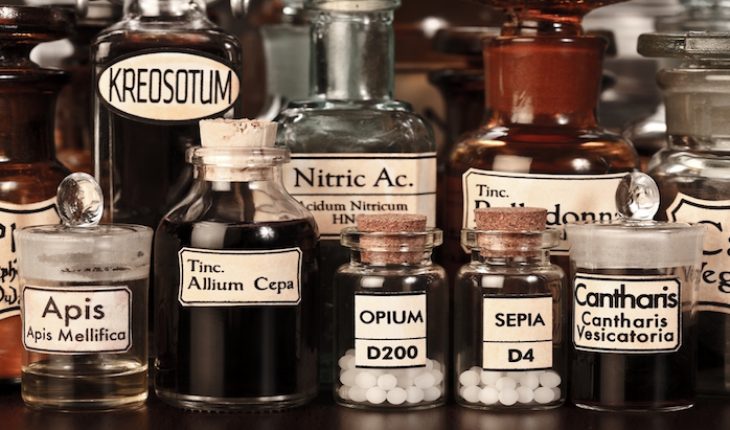Popping a vitamin pill is something we do to try and stay healthy. It is no surprise that the over-65s are around twice as likely as the under-24s to take supplements. But do they actually work?
In the case of antioxidants, including Vitamin C, A, and E, there is conflicting evidence about their health benefits.
A number of studies have suggested that taking vitamins could help to ward off certain cancers including prostate cancer, but several large-scale studies have failed to find this effect. One study at the University of Texas and the Cleveland Clinic Lerner College of Medicine found that there was no notable difference between four groups of men taking the mineral selenium, vitamin E, both together or a dummy pill.
More worryingly, there is evidence that some pills could actually be causing more harm than good and could even be increasing the risk of an early death.
A team of scientists in Copenhagen reviewed 47 different studies to get an accurate overview of the benefits of antioxidant supplements and published their results in a 2007 issue of the Journal of the American Medical Association. What they found was that taking supplements of vitamins A and E and beta carotene seemed to shorten lifespan. This directly contradicted claims that antioxidant supplements improve health and ward off ailments like heart disease.
While the risk of death was unchanged among Vitamin C and selenium users, those who took beta carotene had a 7 per cent increased risk, those who took Vitamin E had a 4 per cent increased risk and those who took Vitamin A had a worrying 16 per cent increased risk of dying early.
The researchers thought that this may have been due to the fact that although these antioxidants mop up damaging free radicals in the blood, this may actually interfere with the natural defence mechanisms of the body.
Dr Frankie Phillips, a nutritionist at the British Dietetic Association says that there been a number of studies, ‘which show that antioxidant vitamin supplements may have a negative effect. For example, there was a study which showed that smokers who took a high dose supplement of beta carotene increased their chances of dying from lung cancer.
The best thing to maintain your health is to eat a healthy balanced diet. Vitamin supplements can never take the place of whole foods, which contain a complex interaction of minerals and vitamins in their natural form. I would recommend eating at least five portions of fruit and vegetables a day, and plenty of leafy greens to get your natural antioxidants.’
Dr Pamela Mason, a nutritionist of the Health Supplements Information Service, points out that‘Vitamin, mineral and dietary supplements not only have proven health benefits, they are essential to the maintenance of good health and can help bridge the nutritional gap for many people in the UK whose diets are often lacking in essential nutrients.
The truth is that many clinical trials do support the effectiveness and safety of antioxidant vitamins such as Vitamin A, E and beta-carotene, particularly in cardiac health, when combinations of antioxidants have been used.’
Antioxidant Vitamin Glossary:
Vitamin A (Retinol):
Benefits: Vital for maintenance of good eyesight, particularly for the normal function of the retina and visual adaptation to darkness, and healthy skin.
Dangers: Pregnant women should not take vitamin A supplements which contain more than the 800mcg RDA unless under medical supervision. Safe Upper Level: 1500mcg.
Vitamin E:
Benefits: Vitamin E is particularly important for the protection of cell membranes as well as maintaining healthy skin, heart and circulation.
Dangers: One study found that patients with heart disease or diabetes who took high doses of vitamin E daily for an average of seven years were at a significantly increased risk of heart failure compared to patients who were not taking vitamin E supplements. RDA 10mg. Safe Upper Level: 540mg
Beta carotene (Pro-Vitamin A):
Benefits: Beta carotene acts as an antioxidant in the body, neutralising potentially damaging free radicals.
Dangers: High intakes are not recommended for smokers as two separate studies show that taking synthetic beta carotene may increase the risk of lung cancer/death in smokers. RDA not established.
Vitamin C (Ascorbic acid):
Benefits: Helps the white blood cells to fight infection and is essential for wound healing. Also needed for the formation of collagen, for healthy skin.
Dangers: Some medicines can be affected by vitamin C. Safe Upper Level: 1000mg.
Selenium:
Benefits: Protects the body cells from damage, helps maintain the body’s defence system and has a role in cancer prevention.
Dangers: High blood levels of selenium can result in a condition called selenosis. Symptoms include gastrointestinal upsets, hair loss, white blotchy nails. Safe Upper Level: 350mcg.
- Christmas Is for All - 19th December 2025
- Intense influenza season driven by new strain - 19th December 2025
- KFSHRC Develops Novel Technique to Treat Inner Ear Disorders - 19th December 2025







